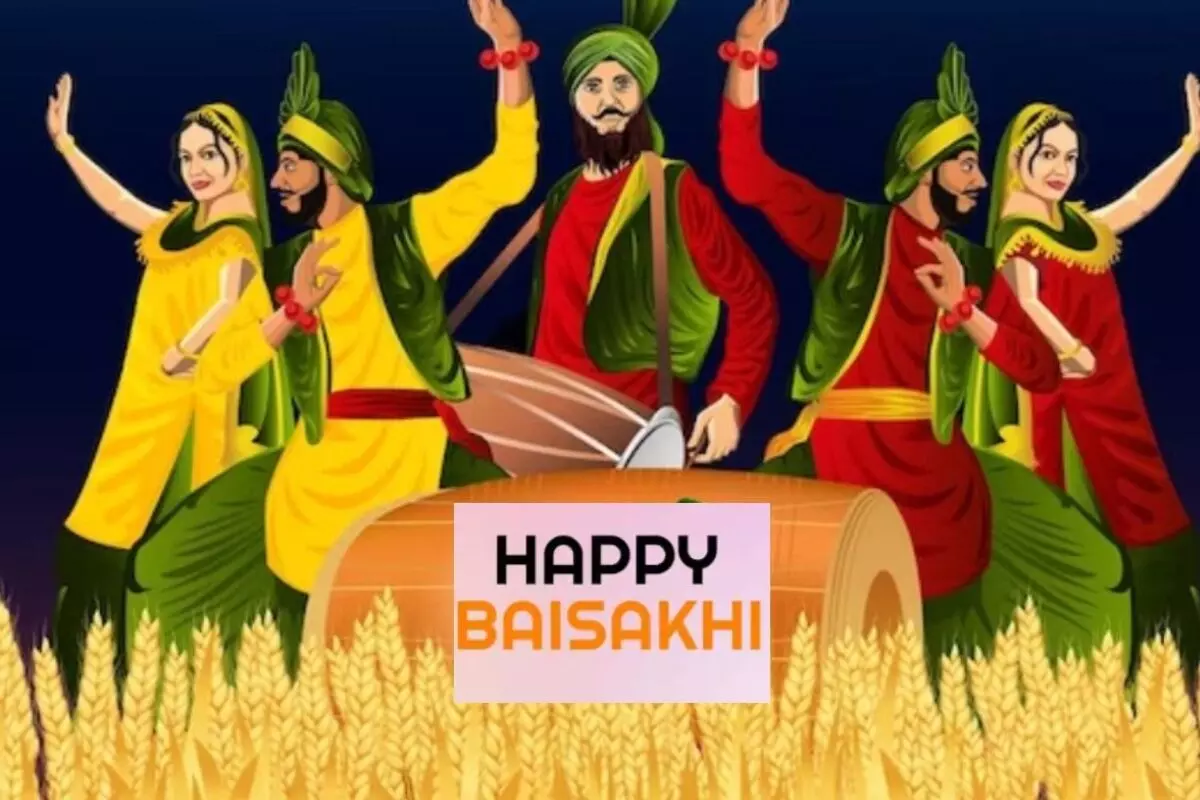TRENDING TAGS :
Celebrating Baisakhi: A Colorful Harvest Festival of Joy and Unity
Baisakhi, also known as Vaisakhi, is a vibrant festival celebrated with great zeal and enthusiasm, particularly in the Indian subcontinent. It holds significant cultural, religious, and historical importance for various communities, marking the harvest season's onset and symbolizing unity, joy, and new beginnings. Let's delve into the rich tapestry of traditions, customs, and the deeper meaning behind this auspicious occasion.
Historical Significance:
Baisakhi carries immense historical significance, particularly for the Sikh community. It commemorates the establishment of the Khalsa Panth by Guru Gobind Singh Ji in 1699. On this day, Guru Gobind Singh Ji initiated the first five members of the Khalsa, transforming them into saint-soldiers, embodying courage, righteousness, and selflessness.
Harvest Festival:
Baisakhi heralds the arrival of the harvest season in the agricultural calendar. It is a time when farmers rejoice in the fruition of their hard work and offer gratitude for the bountiful yield. The festival is marked by colorful fairs, folk music, traditional dances like Bhangra and Gidda, and feasting on delicious dishes made from freshly harvested crops.
Cultural Celebrations:
Across India, Baisakhi is celebrated with diverse regional variations, each adding its unique flavor to the festivities. In Punjab, the heartland of Baisakhi celebrations, processions known as Nagar Kirtan are organized, with the Guru Granth Sahib Ji carried in a palanquin, accompanied by hymn singing and martial arts displays.
In West Bengal, Baisakhi coincides with the Bengali New Year, known as "Poila Boishakh," marked by colorful processions, traditional music, and sumptuous feasts. In Assam, it is celebrated as "Rongali Bihu," characterized by vibrant dances, traditional Assamese attire, and the exchange of sweets and greetings.
Spiritual Significance:
Baisakhi is not just a festival of merriment but also holds profound spiritual significance. It signifies the triumph of good over evil, righteousness over injustice, and the eternal cycle of renewal and regeneration. It serves as a reminder to uphold moral values, promote unity and harmony, and strive for the welfare of all.
Community Bonding:
One of the most beautiful aspects of Baisakhi is its ability to bring people together, transcending barriers of caste, creed, and religion. It fosters a sense of belonging and camaraderie, as people from all walks of life join hands to celebrate the spirit of unity and brotherhood. The festival promotes social cohesion and mutual respect, strengthening the fabric of society.
Conclusion:
Baisakhi is not merely a festival; it is a celebration of life, abundance, and shared heritage. It embodies the essence of joy, gratitude, and resilience, resonating with people of diverse cultures and backgrounds. As we come together to celebrate Baisakhi, let us embrace its message of love, compassion, and solidarity, and strive to build a world filled with peace and prosperity for all. Happy Baisakhi!



